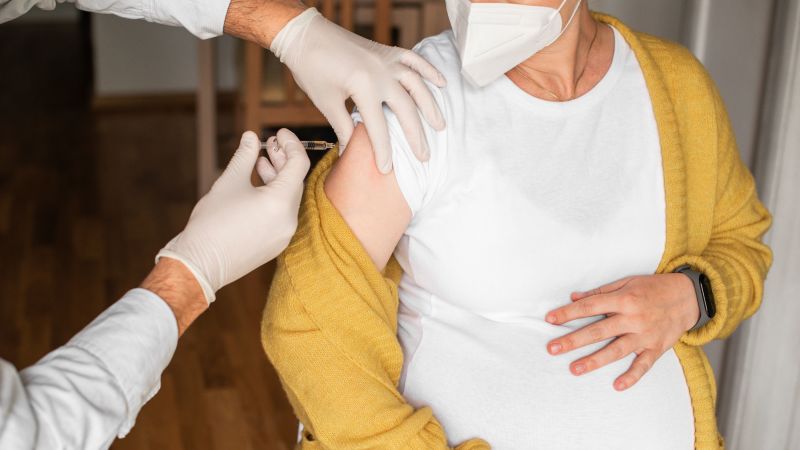
Autism diagnosis rates higher among children born to mothers who had Covid-19 during pregnancy, study suggests
Children may be more likely to be diagnosed with autism and other neurodevelopment disorders if their mother had a Covid-19 infection while pregnant, according to a new study.
Researchers from Massachusetts General Hospital analyzed more than 18,000 births that occurred in the Mass General Brigham health system between March 2020 and May 2021, assessing records for laboratory-confirmed Covid-19 tests among the mothers and for neurodevelopment diagnoses among their children through age 3.
They found that children born to mothers who had Covid-19 during pregnancy were significantly more likely to be diagnosed with a neurodevelopment disorder than those born to mothers who did not have an infection while pregnant: more than 16% versus less than 10%, or a 1.3 times higher risk after adjusting for other risk factors.
Overall, differences in risks were more pronounced among boys and in cases where the mother had a Covid-19 infection during the third trimester. Previous studies have suggested that male fetal brains are more susceptible to maternal immune responses, according to the authors of the new study, and the third trimester is a “critical window for brain development.”
The most common diagnoses included disorders in speech and motor function development and autism. About 2.7% of children born to mothers who had Covid-19 while pregnant were diagnosed with autism, compared with about 1.1% of others, according to the study, published Thursday in the journal Obstetrics and Gynecology.
The new findings are “particularly notable in light of their biological plausibility,” the researchers wrote. They build on previous research that identified potential pathways for a maternal Covid-19 infection to affect the developing fetal brain even without direct transmission.
“Parental awareness of the potential for adverse child neurodevelopmental outcomes after COVID-19 in pregnancy is key. By understanding the risks, parents can appropriately advocate for their children to have proper evaluation and support,” Dr. Lydia Shook, maternal-fetal medicine specialist at Massachusetts General Hospital and lead author of the study, said in a news release.
About 1 in 31 children in the US was diagnosed with autism by age 8 in 2022, according to a report published by the US Centers for Disease Control and Prevention that was published in April. The increase — up from 1 in 36 children in 2020 — continues a long-term trend that experts have largely attributed to better understanding of and screening for the condition.
Earlier this year, the US Department of Health and Human Services launched a “massive testing and research effort” to determine “what has caused the autism epidemic.”
In a news conference in September on the “cause of autism,” President Donald Trump — flanked by HHS Secretary Robert F. Kennedy Jr. and other federal health leaders – said that use of Tylenol during pregnancy can be associated with a “very increased risk of autism,” despite decades of evidence that it is safe.
Kennedy also has a history of comments linking autism and vaccines, despite strong evidence that the two are not connected.
The timeframe of the new study – early in the pandemic, before vaccines were widely available – meant that the researchers were able to “isolate the association between SARS-CoV-2 infection and offspring neurodevelopment in an unvaccinated population.” About 93% of the mothers included in the assessment had not received any doses of Covid-19 vaccine. Strong infection-control policies at that time also helped reduce the potential for unreported or undetected Covid-19 cases, the researchers said.
“These findings highlight that COVID-19, like many other infections in pregnancy, may pose risks not only to the mother, but to fetal brain development,” Dr. Andrea Edlow, a maternal-fetal medicine specialist at Mass General Brigham and senior author of the new study, said in a news release. “They also support the importance of trying to prevent COVID-19 infection in pregnancy and are particularly relevant when public trust in vaccines – including the COVID-19 vaccine – is being eroded.”
First Appeared on
Source link






